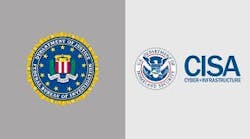Technology companies aren't taking advantage of a federal law intended to spur the development of anti-terrorism tools, the U.S. Department of Homeland Security says.
A federal law enacted after the Sept. 11, 2001, terrorist attacks provides government-authorized companies with immunity from civil lawsuits if their anti-terrorism products fail to perform. But Homeland Security said Monday that only 17 offerings--none related to information technology--have received such approval.
"To realize the full benefits technology has to offer, we have to look beyond the walls of DHS itself, to the private sector and to the world of high tech in places just like this, Silicon Valley," Homeland Security Secretary Michael Chertoff said Thursday at the Commonwealth Club in Santa Clara, Calif. "To the innovators who have made our world so much smaller, we are now looking to you to help make it that much safer."
A federal law known as the Support Anti-Terrorism by Fostering Effective Technologies (SAFETY) Act of 2002 allows authorized companies to create anti-terrorism mechanisms while remaining free from court liability if their products fail during an attack. In order to get on the approved list, companies must first go through a two-step application process.
Homeland Security says it has approved 17 products or services for the SAFETY Act's highest level of liability protection, which lasts five years. The agency made its first four approvals in June 2004, but did not add to the list again until February 2005.
Overall, Homeland Security has received 222 pre-applications and 112 second-stage applications since October 2003, spokesman Donald Tighe said Monday.
In his speech, Chertoff said the newly created position of assistant secretary for Cyber and Telecommunications Security would be in charge of stepping up the government's collaboration with tech companies.
So far, none of the approved services pertain specifically to information technology security. The latest technology to make the list was a cargo container inspection system for use at ports, and many of the others involve biological or chemical detection tools developed by large defense contractors like Northrop Grumman and Lockheed Martin.
Homeland Security is eyeing technological advances to beef up border enforcement, emergency preparedness, transportation and, of course, cybersecurity, Chertoff said, but the department still has work to do. Screening of airline passengers, for instance, is currently at a "basic, primitive" stage, Chertoff said, where passengers' names are compared to lists of suspected terrorists.
"But there is a way forward," Chertoff said, pointing to high-tech biometric identifiers and radio frequency identification (RFID) tags as potential new avenues for screening.
The agency also plans to finalize a national infrastructure protection plan that would bring together sectors ranging from agriculture and water to information technology and energy. "We have to coordinate closely to ensure the systems that are making our infrastructure assets more efficient do not also expose them to vulnerabilities that a terrorist could exploit," Chertoff said.

